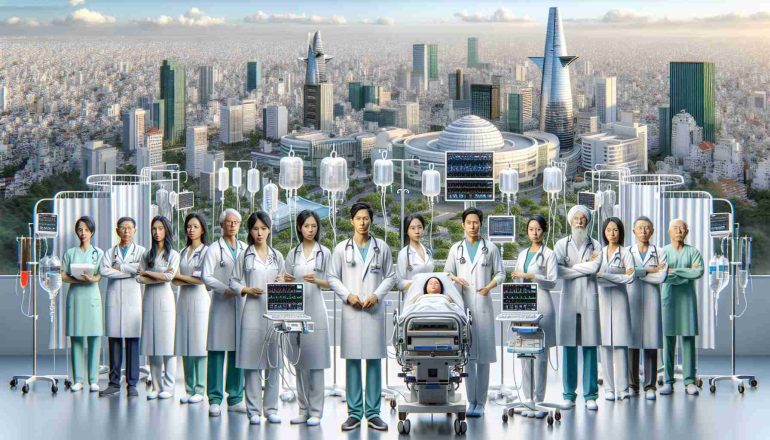- Ho Chi Minh City is undergoing a healthcare transformation focusing on cutting-edge medical advancements.
- The city is becoming a leader in specialized medical care, rivaling developed countries in techniques such as robotic-assisted surgeries and fetal interventions.
- Ho Chi Minh City is establishing itself as a key destination for advanced medical treatments, attracting patients across ASEAN.
- Strategic planning and innovative technologies drive the city’s healthcare sector, positioning it as a regional powerhouse.
- Integrating digital health solutions enhances patient experiences and improves access to care.
- Challenges include ensuring equitable access to advanced services and addressing data privacy and cybersecurity concerns.
- The healthcare revolution benefits patients and boosts the local economy but may lead to over-reliance on automation.
Main AI News:
In the dynamic urban landscape of Ho Chi Minh City, a remarkable transformation is unfolding within the healthcare sector. The focus is on embracing innovation and adopting cutting-edge medical advancements that redefine the standard of care across the city.
Traditional healthcare practices are being left behind as Ho Chi Minh City emerges as a leader in specialized medical care. Hospitals in the city are pioneering advanced techniques, from robotic-assisted surgeries to complex fetal interventions, positioning themselves on par with the world’s most developed healthcare systems.
Ho Chi Minh City is rapidly establishing itself as a premier destination for advanced medical treatments, attracting local patients and those from neighboring ASEAN countries. The city’s healthcare facilities offer a comprehensive range of services, including organ transplants and minimally invasive procedures, making it a top choice for those seeking high-quality medical care.
The healthcare sector in Ho Chi Minh City is not merely evolving; it is thriving. Strategic planning and integrating innovative technologies drive a healthcare revolution, transforming the city into a regional powerhouse. Patients now have access to world-class treatments locally, reducing the need for overseas medical travel and simultaneously drawing medical tourists seeking exceptional care.
As the healthcare landscape in Ho Chi Minh City continues to evolve, several key insights and challenges emerge. These factors are critical to understanding the full scope of the city’s healthcare revolution. Beyond the advanced medical procedures already highlighted, digital health solutions, including telemedicine and health tech applications, are crucial in enhancing patient experiences and improving access to care. These technologies enable remote consultations, continuous medical monitoring, and personalized treatment plans, significantly boosting the efficiency and convenience of healthcare services.
While the progress in specialized medical care is commendable, it is accompanied by challenges, such as ensuring equitable access to these advanced services. Socio-economic disparities, geographic barriers, and varying levels of insurance coverage pose significant hurdles. Additionally, the rise of digital healthcare brings concerns about data privacy and cybersecurity, sparking debates on safeguarding patient confidentiality and securing sensitive medical data.
The benefits of Ho Chi Minh City’s healthcare revolution are manifold. Patients now have access to a broader spectrum of treatments, higher-quality care, and reduced reliance on medical tourism for specialized procedures. Moreover, the city’s burgeoning reputation as a medical hub fuels economic growth through increased medical tourism and attracting top-tier healthcare professionals. However, rapid technological advancements also raise concerns, such as the potential over-reliance on automation, which may affect the traditional patient-provider relationship and the quality of personalized care.
For more detailed insights into the ongoing transformation of healthcare in Ho Chi Minh City, you can visit the official website of the city’s Department of Health. The site offers the latest updates on healthcare initiatives, regulations, and public health services shaping this vibrant metropolis’s future.
Conclusion:
The ongoing transformation in Ho Chi Minh City’s healthcare sector signals a significant shift in the market, with the city poised to become a major hub for medical tourism and advanced healthcare services in the region. This evolution opens up new opportunities for investment in healthcare infrastructure, technology, and professional training. However, market players must also navigate the challenges of ensuring inclusive access and managing the risks of rapid technological adoption. The city’s healthcare advancements will likely attract further attention from international stakeholders, driving competition and innovation across the region.

